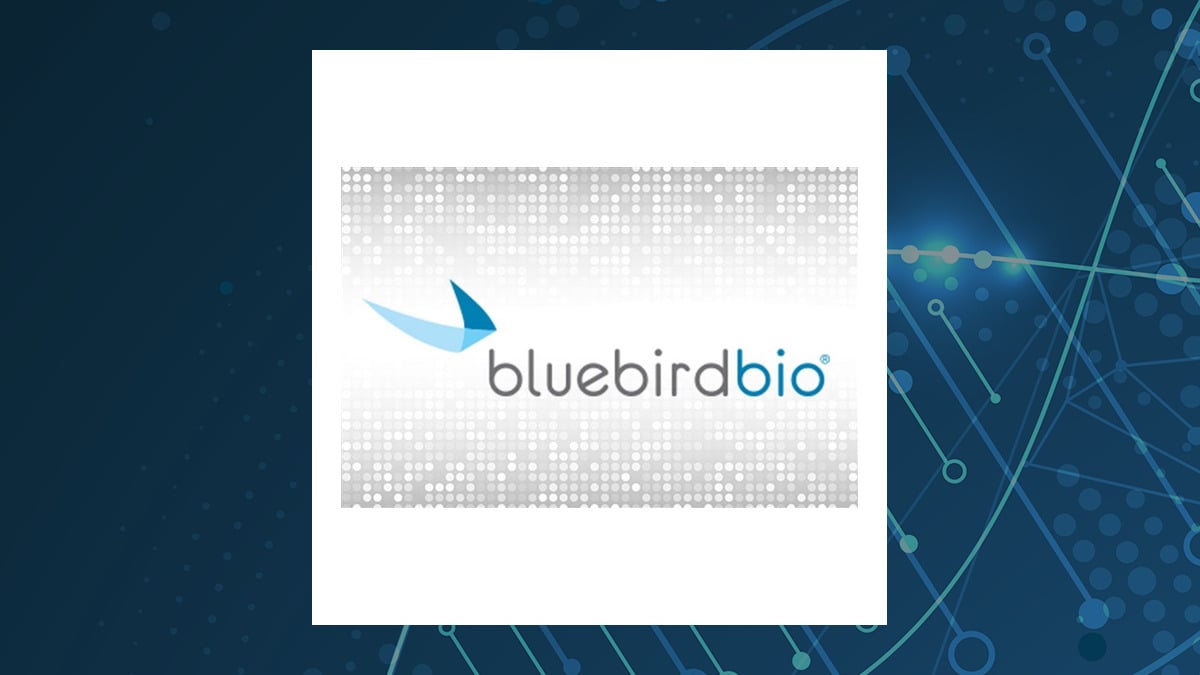 bluebird bio, Inc. (NASDAQ:BLUE – Get Free Report) was the target of a significant decline in short interest during the month of January. As of January 15th, there was short interest totalling 2,410,000 shares, a decline of 6.6% from the December 31st total of 2,580,000 shares. Based on an average daily trading volume, of 405,100 shares, the short-interest ratio is presently 5.9 days. Currently, 25.0% of the company’s shares are sold short.
bluebird bio, Inc. (NASDAQ:BLUE – Get Free Report) was the target of a significant decline in short interest during the month of January. As of January 15th, there was short interest totalling 2,410,000 shares, a decline of 6.6% from the December 31st total of 2,580,000 shares. Based on an average daily trading volume, of 405,100 shares, the short-interest ratio is presently 5.9 days. Currently, 25.0% of the company’s shares are sold short.
Institutional Trading of bluebird bio
A number of institutional investors and hedge funds have recently bought and sold shares of the stock. AQR Capital Management LLC lifted its holdings in bluebird bio by 315.3% in the second quarter. AQR Capital Management LLC now owns 1,334,519 shares of the biotechnology company’s stock valued at $1,223,000 after buying an additional 1,013,144 shares during the period. BNP Paribas Financial Markets increased its stake in shares of bluebird bio by 2,270.2% during the 3rd quarter. BNP Paribas Financial Markets now owns 371,224 shares of the biotechnology company’s stock worth $193,000 after purchasing an additional 355,562 shares during the last quarter. FMR LLC raised its stake in shares of bluebird bio by 8.1% in the third quarter. FMR LLC now owns 2,481,965 shares of the biotechnology company’s stock valued at $1,289,000 after buying an additional 186,903 shares during the period. Barclays PLC increased its holdings in bluebird bio by 273.7% in the 3rd quarter. Barclays PLC now owns 252,062 shares of the biotechnology company’s stock worth $130,000 after acquiring an additional 184,605 shares during the last quarter. Finally, Geode Capital Management LLC raised its stake in bluebird bio by 3.7% in the 3rd quarter. Geode Capital Management LLC now owns 4,683,042 shares of the biotechnology company’s stock valued at $2,433,000 after acquiring an additional 166,771 shares during the period. 87.43% of the stock is currently owned by institutional investors and hedge funds.
Analysts Set New Price Targets
Several brokerages have recently issued reports on BLUE. JPMorgan Chase & Co. downgraded shares of bluebird bio from a “neutral” rating to an “underweight” rating in a research report on Friday, November 15th. StockNews.com initiated coverage on shares of bluebird bio in a research report on Friday, December 20th. They set a “sell” rating for the company. Bank of America cut bluebird bio from a “buy” rating to a “neutral” rating and dropped their price target for the stock from $60.00 to $10.00 in a report on Friday, November 15th. Royal Bank of Canada reaffirmed a “sector perform” rating and set a $80.00 price target on shares of bluebird bio in a research report on Friday, November 15th. Finally, Barclays boosted their price target on bluebird bio from $2.00 to $40.00 and gave the company an “overweight” rating in a research note on Tuesday, December 31st. Three research analysts have rated the stock with a sell rating, five have given a hold rating and two have assigned a buy rating to the stock. According to MarketBeat, bluebird bio currently has a consensus rating of “Hold” and an average target price of $49.14.
bluebird bio Trading Down 9.3 %
Shares of NASDAQ:BLUE traded down $0.72 during midday trading on Monday, hitting $7.03. 403,812 shares of the stock were exchanged, compared to its average volume of 198,134. The company has a debt-to-equity ratio of 0.37, a quick ratio of 0.33 and a current ratio of 0.51. bluebird bio has a 12 month low of $5.80 and a 12 month high of $38.40. The business’s 50-day moving average price is $8.31 and its 200 day moving average price is $11.14. The stock has a market capitalization of $68.35 million, a price-to-earnings ratio of -0.19 and a beta of 0.68.
bluebird bio Company Profile
bluebird bio, Inc, a biotechnology company, researches, develops, and commercializes gene therapies for severe genetic diseases. Its product candidates for severe genetic diseases include ZYNTEGLO (betibeglogene autotemcel) for the treatment of transfusion-dependent ß-thalassemia; lovotibeglogene autotemcel for the treatment of sickle cell disease (SCD); and SKYSONA (elivaldogene autotemcel) to treat cerebral adrenoleukodystrophy.
Recommended Stories
- Five stocks we like better than bluebird bio
- About the Markup Calculator
- How to Invest in Small Cap Stocks
- What Does Downgrade Mean in Investing?
- These Are the Dividend Stocks Insiders Bought in January
- Basic Materials Stocks Investing
- How the ‘No Buy’ Trend of 2025 Is Boosting These 3 Stocks
Receive News & Ratings for bluebird bio Daily - Enter your email address below to receive a concise daily summary of the latest news and analysts' ratings for bluebird bio and related companies with MarketBeat.com's FREE daily email newsletter.
